General
WBG Economic Update Makes Case for Investing More in Uganda’s Education
Published
5 years agoon
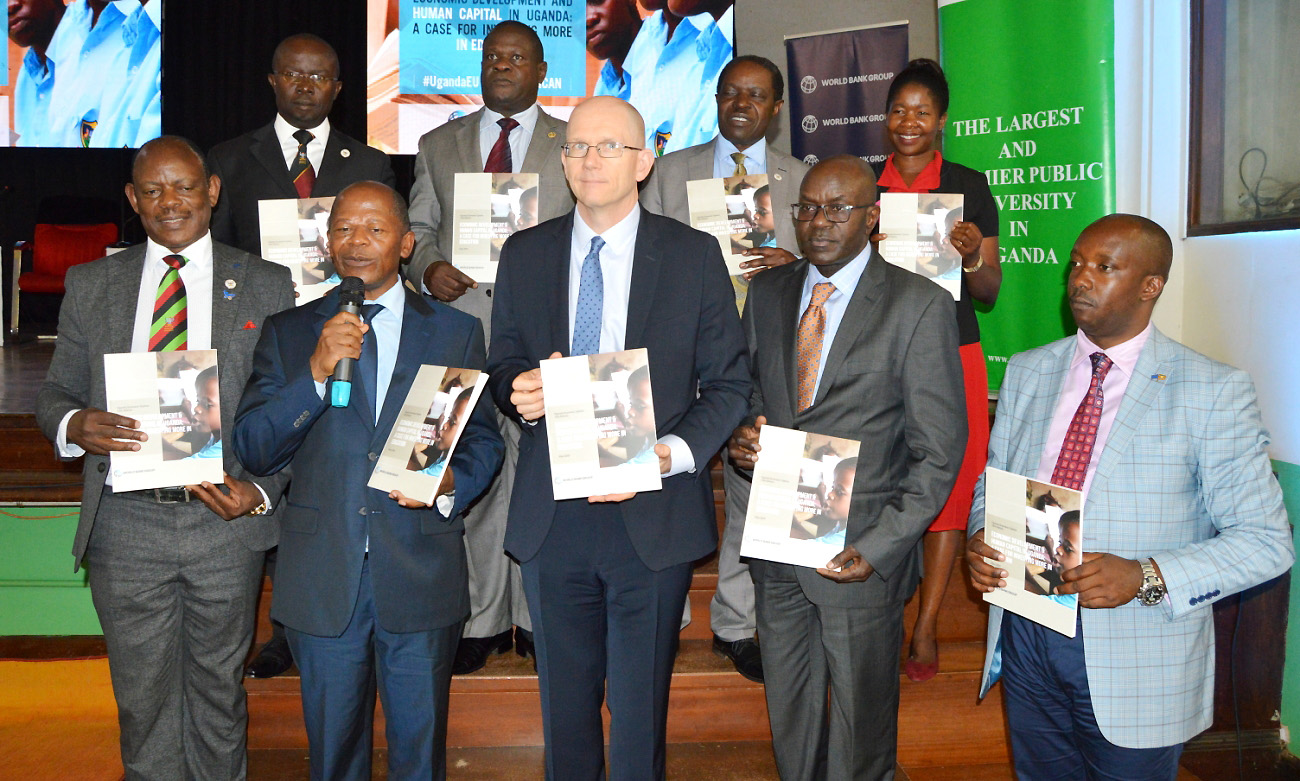
On Thursday, 30th May 2019, Makerere University was privileged to host the official launch of the Uganda Economic Update, 13th Edition in partnership with the World Bank Group (WBG). Held in the Main Hall, the event was presided over by the State Minister for Higher Education, Hon. Dr. John Chrysostom Muyingo, who represented the First Lady and Minister of Education and Sports, Hon. Janet Kataaha Museveni.
Delivering the welcome remarks, the Vice Chancellor, Prof. Barnabas Nawangwe thanked the World Bank Group chiefly represented by the Uganda Country Manager Mr. Antony Thompson, for choosing Makerere University to host the event. He noted that the theme for the 13th Edition; Economic Development and Human Capital in Uganda: A case for Investing more in Education particularly fits in well with Makerere’s mandate to produce quality human resources for the region.
“The 13th Economic Update highlights pertinent issues rotating around improving quality in the Uganda’s Education sector, which are also at the heart of Makerere University. I particularly appreciate the World Bank’s Human Capital Index (HCI) that measures the impact of under investing in human capital on the productivity of the next generation of workers” added Prof. Nawangwe.

Prof. Nawangwe further thanked the World Bank for collaborating with staff at the School of Economics to produce and disseminate the 6th, 7th, 8th and 9th Uganda Economic Updates as well as allocating a US$900,000 grant to establish a Public Investment Management (PIM) Centre of Excellence at the same School. He noted that the two World Bank funded Centres of Excellence the; African Center of Excellence in Materials, Product Development and Nano-Technology (MAPRONANO) and Makerere University Regional Centre of Excellence in Crop Improvement (MaRCCI) had since inception recruited students at Masters and PhD level, procured equipment and facilitated various capacity building trainings for staff.
In his remarks, Mr. Antony Thompson thanked the Vice Chancellor and University leadership for accepting to host the launch of the 13th Edition of the Economic Update. Admitting that the launch was his inaugural visit to Makerere, he could not hide his admiration for the job well done by KCCA in rehabilitating infrastructure at the University as part of the Second Kampala Institutional and Infrastructure Development Project (KIIDP-2).
Mr. Thompson observed that although Uganda’s economy remains strong and stable, it still faces major risks such as poor quality of the human capital. He advised that countries can only end extreme poverty and create more inclusive societies if they invest in developing their human capital. “In addition to the economic benefits, basic education increases individual’s earnings by about 70 percent. Education reduces the risk of poverty and provides other benefits, including lower under-age pregnancy and better health outcomes.”

The Country Manager however noted that despite advances such as Universal Primary Education (UPE) made by the Ugandan Education sector, the country’s Human Capital Index still remains low. “A child born in Uganda today will be only 38% as productive when she grows up as she could be if she enjoyed complete education and full health.”
He also reported that over 1.4million pupils currently drop out from primary schools and never make it to P7. He nevertheless opined that when this trend is addressed, one million new places need to be created in lower secondary schools in next 6 years to accommodate this additional intake.
“Achieving these ambitious results will require significant changes in educational policy and major additional investments of at least $2 billion between 2019 and 2025 to improve both the quality of learning and enrollment. This requires increasing the current education spending from 10 percent to reach the sub Saharan average of 16 percent” explained the Country Manager.
He nevertheless reiterated the World Bank’s commitment to support the Ugandan Government to realize these goals.

The panel discussion that followed the presentation of the Economic Update brought to light a number of initiatives being undertaken by the Ugandan Government in partnership with the World Bank as well as several points of reflection. The presentation underscored the need to increase budgetary allocation to the Education Sector, expand early childhood (pre-primary) education, scrap the Primary Leaving Examination (PLE) in preference for continuous assessment, adopt the automatic promotion policy and improve the transition rate from Primary to Secondary school among other recommendations.
The Permanent Secretary Ministry of Education and Sports (MoES), Mr. Alex Kakooza shared that through the Uganda Teacher and School Effectiveness Project (UTSEP), MoES had with support from the Global Partnership for Education (GPE) under supervision of the World Bank been able to improve early grade literacy instruction and parent participation in children education. UTSEP has also improved parent participation in school activities like feeding programmes. He added that the outcomes from the pilot districts in Eastern Uganda had been tremendous so far, with pupils as low as P3 exhibiting improved literacy and numeracy skills.
Mr. Kakooza however observed that more resources will be required to implement the World Bank recommendations, especially in the recruitment of more teachers and construction of additional classrooms. “Currently, over 1,000 parishes in Uganda do not have primary schools. If these were to be constructed, an additional 20,000 teachers would need to be recruited to teach these pupils.”
He nevertheless thanked the World Bank for sharing cost effective infrastructure development plans, which would enable the Ministry meet the rapidly growing demand for classroom space.

The Executive Director National Planning Authority (NPA), Dr. Joseph Muvawala observed that whereas Uganda constantly trumped up the benefits of reaping a demographic dividend from its relatively young population, well structured investments were of utmost importance. “I thank the World Bank for this report but wish to state that dividends accrue to those that invest and it is clear that we are not investing enough.”
On the scrapping of PLE, Dr. Muvawala said that whereas this was technically the most viable option, it would not be implementable as observations had revealed teachers’ preference of a final exam over continuous assessment. He also stressed the need to further investigate the high dropouts recorded at primary level and come up with investments aimed at addressing the findings.
The Deputy Secretary to the Treasury, Mr. Patrick Ocailap’s opportunity to speak was highly anticipated as most recommendations had in essence called for increased budgetary allocation to the Education sector. He thanked the World Bank Group for its report and concurred with all the findings and conclusions therein. He nevertheless asked the calls for increased funding to be matched with an analysis of efficient use of current allocations to the sector.

Mr. Ocailap also advocated for improved efficiency in revenue collection as a way of boosting government revenue but cautioned that as the economy expands, marginal and not proportional allocations to the education sector might be the more viable option.
The Deputy Secretary to Treasury also weighed in on the calls for increased salaries to teachers, noting that they were indeed legitimate. He however emphasised that this ought to be balanced by evident improvements in students’ performance and improved efficiency of teaching in schools.
Mr. Patrick Kaboyo the Executive Director, Coalition of Uganda Private School Teachers Association (COUPSTA) reminded the gathering that whereas world leaders meeting in Muscat, Oman in 2014 had agreed to commit 6% of national GDP to Education, Uganda’s commitment still stood at less than 3%. He nevertheless applauded the Cabinet for approving the National Teacher Policy on 1st April 2019, which would go a long way in improving teachers’ productivity, discipline, retention and motivation.

He acknowledged that whereas the Ugandan Education Sector is currently in reform mode, there was need to look beyond improving access and massification to ensuring that the sector produces critical thinkers. These, he noted, would be better suited to function in today’s creativity-driven marketplace.
A curriculum that matches personal development and attainment of knowledge with the skills that meet current industry demands will be a great asset to the implementation of WBG recommendations and achievement of the Education Sector’s targets. Dr. Rovincer Najjuma a Lecturer and Curriculum Specialist in the College of Education and External Studies (CEES) shared that Uganda requires a curriculum that offers holistic development of skills at all levels of education because the employability of a workforce starts with skills developed right from the foundational stages of lower primary.
She however cautioned that developing a great curriculum should not take precedence over the training of quality teachers. This position, she said, was derived from reports showing that a child in sub-Saharan Africa spends a great percentage of their school going age interacting with teachers. As such, teachers possibly have the greatest influence on pupils. She therefore advocated for a Centre of Excellence to develop teachers’ capabilities.

Delivering the final address of the day, the Guest of Honour, Hon. Dr. John Chrysostom Muyingo thanked the Makerere University Management for accepting to host the important launch. He equally thanked the WBG Country Director for the well researched report, noting that it would generate a lot of debate from almost every Ugandan. He asked the audience to observe a moment of silence in respect of a great academic and former Prime Minister and Chancellor of Makerere University, Rt. Hon. Prof. Apolo Robin Nsibambi who passed away on Tuesday 28th May 2019.
Reading the First Lady and Honourable Minister of Education and Sports’ remarks, Hon. Muyingo said that Africa has been reported as the region of the world having the highest return on Education. He shared that MoES has been reviewing the Government White Paper on Education (1992), which analyses the full scope of education sector and its polices. He added that MoES is working with the WBG under the Global Partnership for Education (GPE) to review Uganda’s Integrated Early Childhood Development Policy so as to ensure adherence to minimum standards.
The State Minister for Education further reported that the Government had approved the Technical, Vocational Education and Training (TVET) Policy. The policy will pave way for an employer-led TVET System and TVET Qualification Framework. He added that MoES would soon come up with an ICT Education Policy to enhance access to the vast online resources.

Hon. Muyingo concluded his remarks by appreciating all partners who work with the Ministry of Education and Sports to ensure timely delivery of quality education and thanked WBG for the well-timed release of the report, noting that it will inform ongoing policy reform.
Article by Public Relations Office.
You may like
General
Mak DARP Project Launch to Revolutionise Management of Academic Records
Published
23 hours agoon
April 22, 2024By
Mak Editor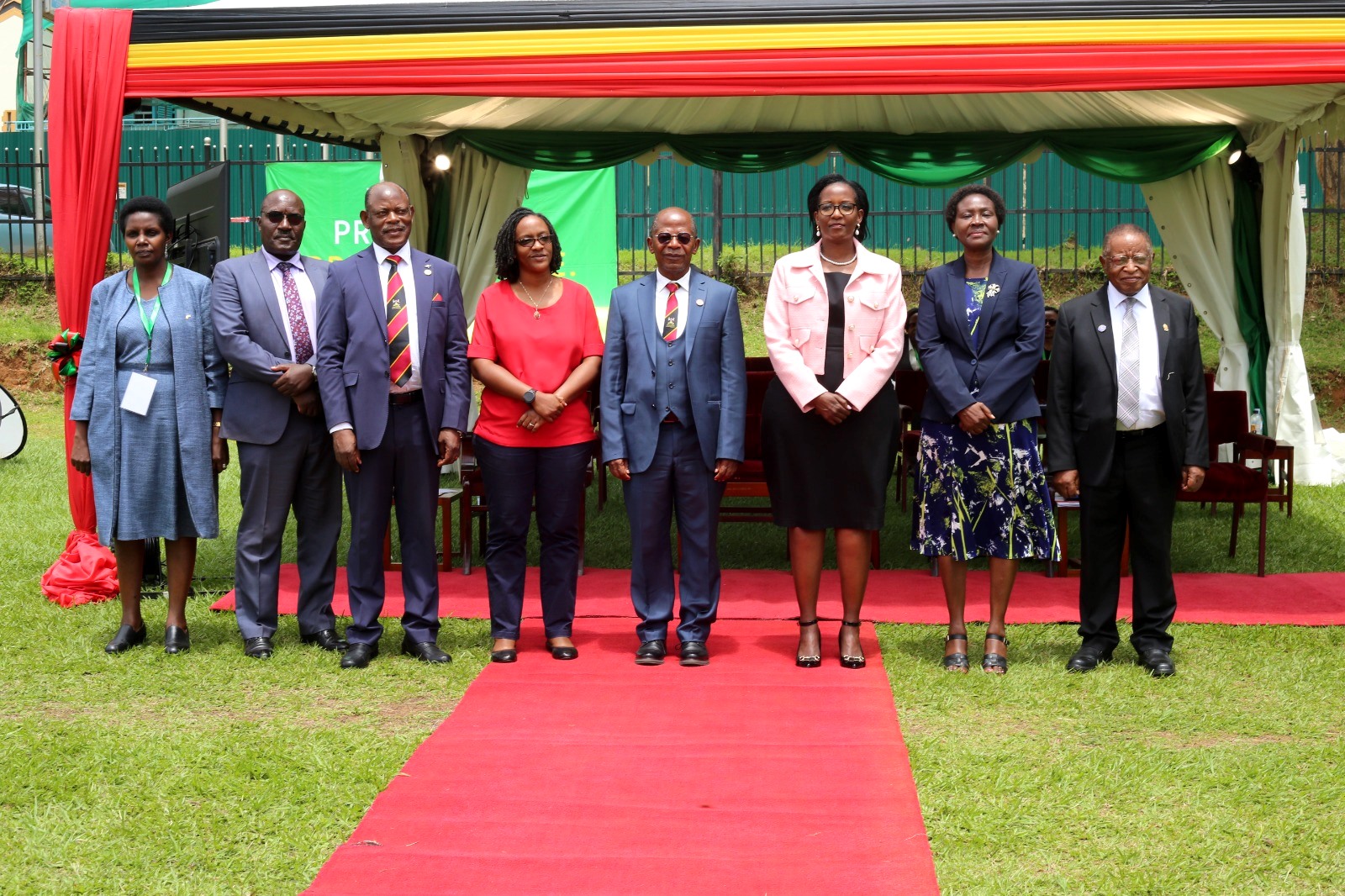
By Ritah Namisango
“This initiative, funded by the Government of Uganda through Makerere University Research and Innovations Fund in partnership with the Mastercard Foundation, represents a significant step forward in our efforts to modernize and digitalize our academic processes. It’s therefore with great pleasure and pride that I launch the Digitalization of Academic Records and Processes project at Makerere University, and I commission the Registry of Students’ Records and the Archive of Students’ Records,” stated the Minister of Education and Sports, Hon. Janet Kataaha Museveni represented by the State Minister for Higher Education, Hon. John C. Muyingo.
As the world continually evolves from manual and traditional methods of records management to modern and digitalized processes, Makerere University launched the Digitalization of Academic Records and Processes (DARP) project to ease the storage, retrieval and acquisition of academic documents by her stakeholders.
The project has digitalized records and implemented new processes as well as established a digital state-of-the-art storage facility at the Senate Building to securely store university academic documents. The digitization process comes along with a university policy that guides on how to record, manage, retrieve and dispose of records not in use. This project is designed to reduce on the substantial amount of space that paper storage systems occupy as well as safeguard records from disasters like fire.
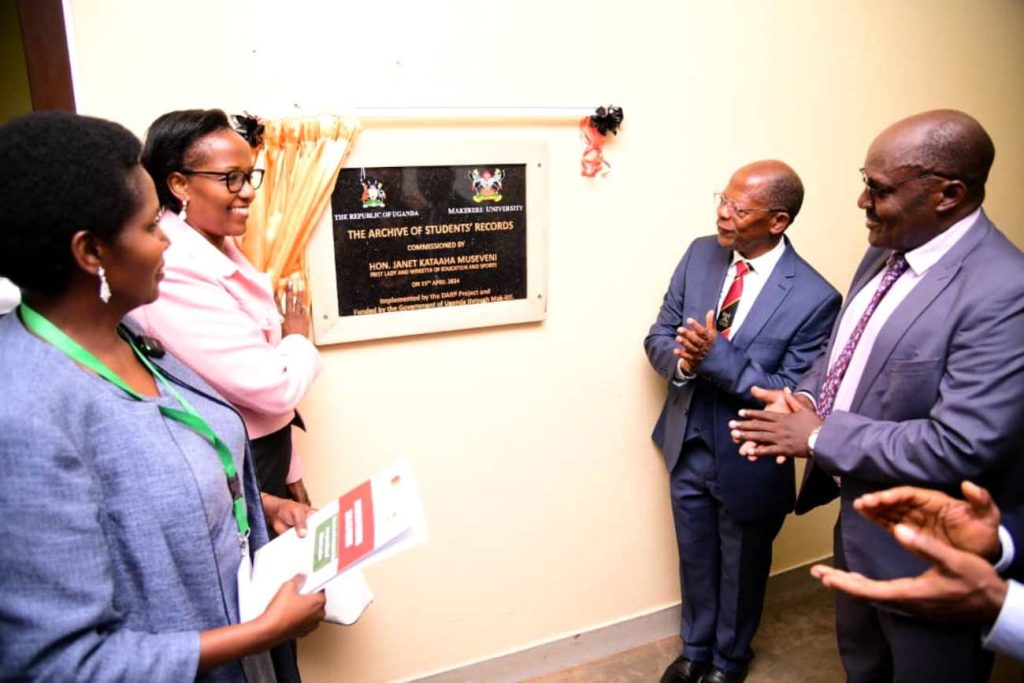
Officiating at the launch of the DARP project on Friday 19th April, 2024 at Makerere University Freedom Square, Hon. John C. Muyingo, affirmed on behalf of Hon. Janet Kataaha Museveni that the launch was a significant milestone in the history of Makerere University.
The Education and Sports Minister further noted that in today’s fast-paced world, universities must manage massive amounts of academic information, and efficient record keeping necessitates that the information is accurate, accessible and secure, benefiting both the institution and its stakeholders. She noted that the DARP system would streamline the processes of managing and accessing academic records, resulting in significant timesaving for students and other stakeholders at the university and beyond.
“Digitalization of academic records and processes is an innovation set to revolutionize the way records are managed by addressing pressing public concerns such as efficiency, security, integrity and accessibility as well as eliminating the unnecessary delays in the processes. The traditional manual approach, while effective in its time has become increasingly challenging to sustain in this digital world, therefore, digitalizing academic records and processes provide crucial responses to the monotonous questions that the outdated manual system never addressed,” stated the Minister’s speech.
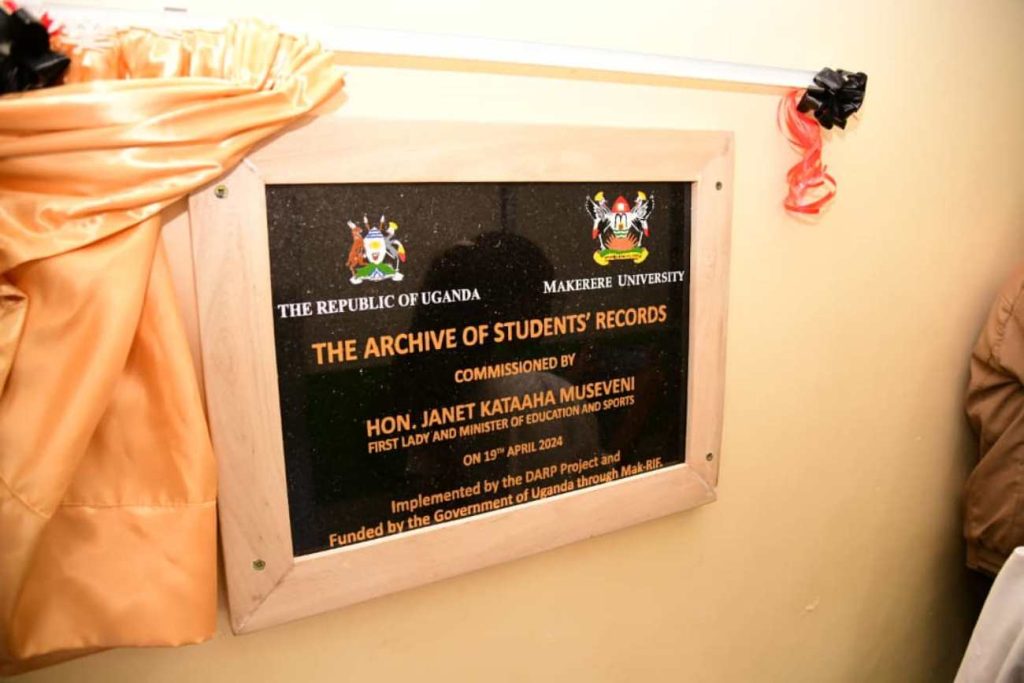
Having outlined the challenges and risks that the traditional paper-based record keeping systems present such as the storage space factor, the risk of mixing active and inactive records, the high rate of wear and tear as well as vulnerability to manipulation of records, the Minister commended Makerere University on the enviable track record of efficiently managing and securely storing its academic documents, Senate minutes, curricula, examination results and students files for nearly a century, despite political upheavals and other challenges.
She observed that digitalized systems would make academic records more accessible to the students and eliminate the frustration of delays caused by bureaucratic inefficiencies and the outdated paper system, enabling them to timely take the necessary steps in academic and professional progression.
As the University embarked on its journey of digital transformation, Hon. Janet Kataaha Museveni equally applauded Makerere for continuously upholding its commitment to academic excellence, research and innovation. She advised the fraternity to stay committed to the principles of innovation and inclusiveness that define the University. As such, she urged them to embrace the digital transformation wholeheartedly so as to harness the power of technology and enable Makerere University to remain a beacon of excellence in the academic world.
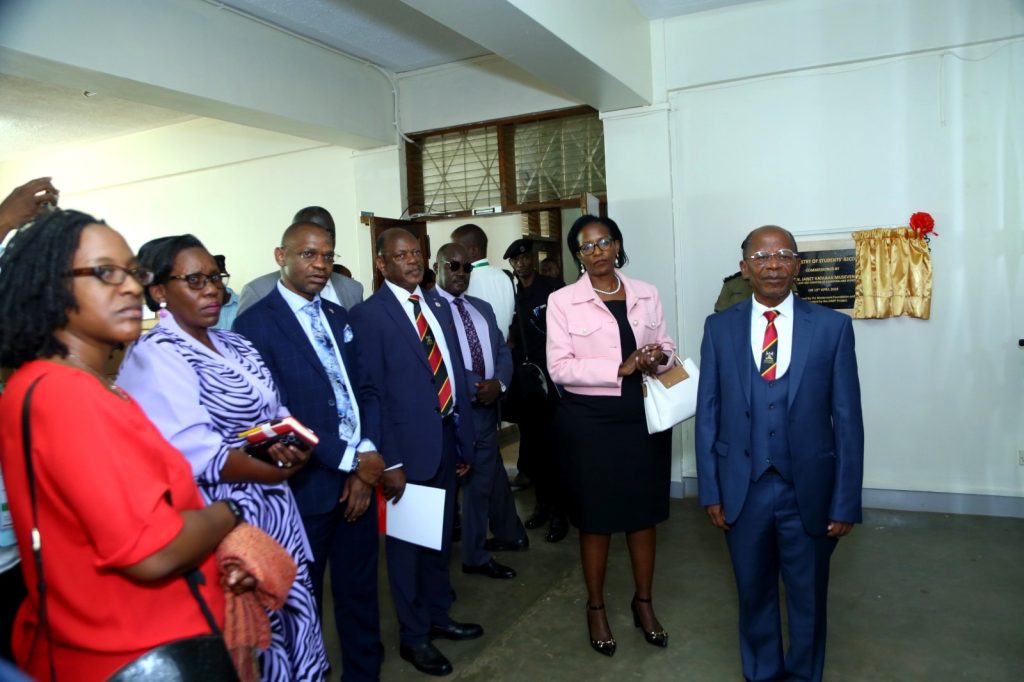
“Since its establishment in 1922, Makerere University has been a beacon of knowledge and learning, shaping the minds of generations of students and contributing significantly to the development of our nation, Africa and the world at large. Thank you for these brains. Your hard work, expertise, and dedication were instrumental in building this DARP project to realization. I am confident that you will have a lasting and positive impact on this university and the entire education sector, not only in Uganda, but the entire world,” said Hon. Janet Museveni.
The First Lady expressed her gratitude for the partnership with Mastercard Foundation and the support it renders in advancing education and innovation at Makerere University.
The Vice Chancellor, Prof. Barnabas Nawangwe highlighted that the launch of the DARP project was not only a landmark achievement for Makerere University, but also a confirmation of the importance that the University Council and Management attach to the role that digitalization and e-services play in implementation of the University strategic plan that continually strives for a professionally managed university.
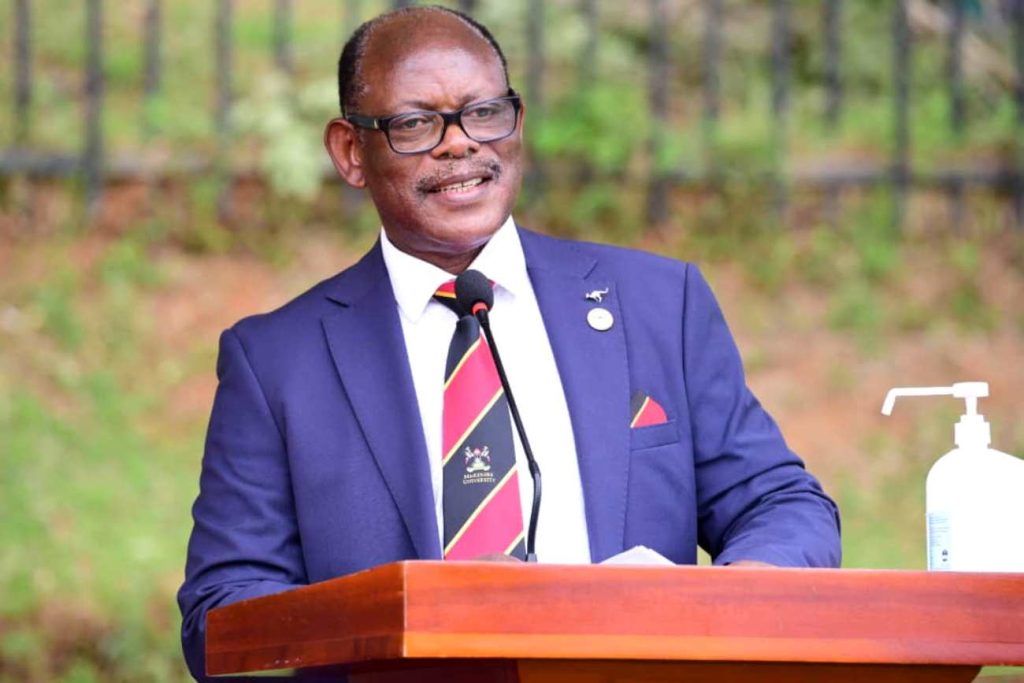
The Vice Chancellor revealed that the official launch of the DARP Project, undertaken in-house by a hardworking team of University staff, was a financial gain on the part of the University and an additional asset in the quest to improve efficiency and effectiveness as far as the University academic records and processes are concerned.
“Our current drive has been the continued digitalization of various business processes and services so as to be more responsive to the dynamic needs of our students, staff and stakeholders. We have been able to achieve this through intentional development of our in-house information systems development capacity, which has saved us a lot of funds in terms of initial purchase as well as annual license renewal costs,” said the Vice Chancellor.
Prof. Nawangwe stated that the DARP project has greatly contributed to the timely and improved service delivery to students and clients. He added that the ultimate goal is to enable students download their own transcripts without need for elaborate physical processes at the university.
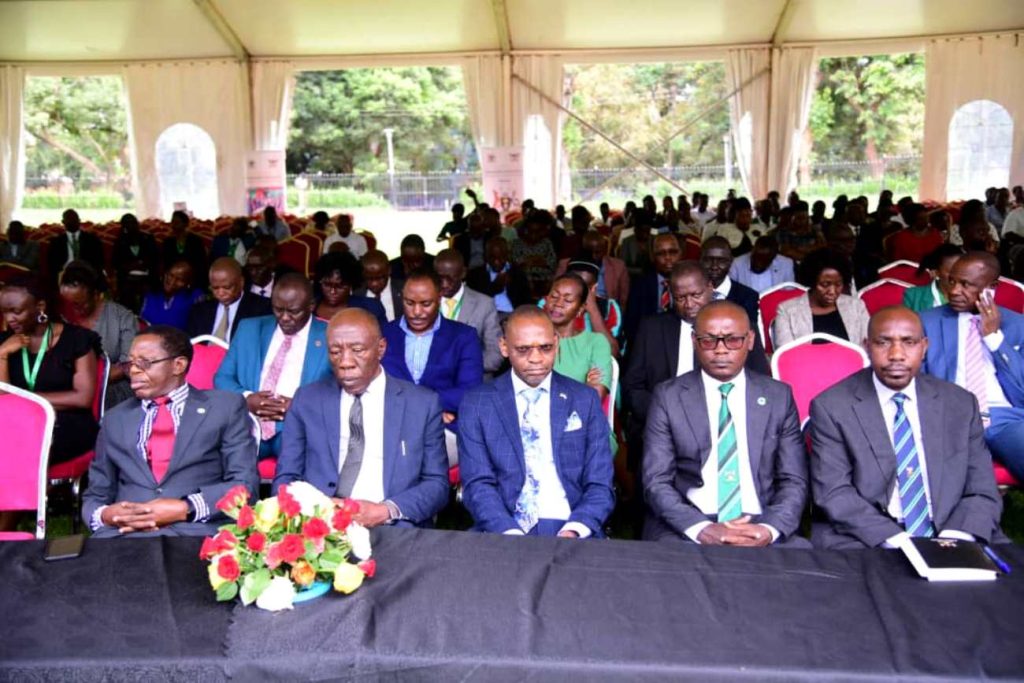
“During the 74th graduation ceremony, Makerere University was able to issue academic transcripts to qualifying students before graduation. I am pleased to inform you that we succeeded in issuing of academic transcripts before the graduation date because of the DARP project, which we are launching today. With the digitalization of students’ academic records, the University is now in a better position to provide the required information and data on time,” said the Vice Chancellor.
Prof. Nawangwe elaborated that Makerere, being Uganda’s Premier University has been a major beneficiary of several initiatives aimed at improving ICT infrastructure and connectivity. He added that the University has been able to achieve this largely due to the generous donations of the Government of Uganda and other development partners. He thanked His Excellency Yoweri Kaguta Museveni, the President of Uganda whose support led to the creation of the Research and Innovations Fund (Mak-RIF) in the 2019/2020 financial year with initial funding of UGX 30 Billion.
He revealed that the funding has continued to be availed throughout the last five financial years, which is clear demonstration that the Government of Uganda esteems Research and Innovation as catalysts to Uganda’s continued march from a peasant to a modern and prosperous country.
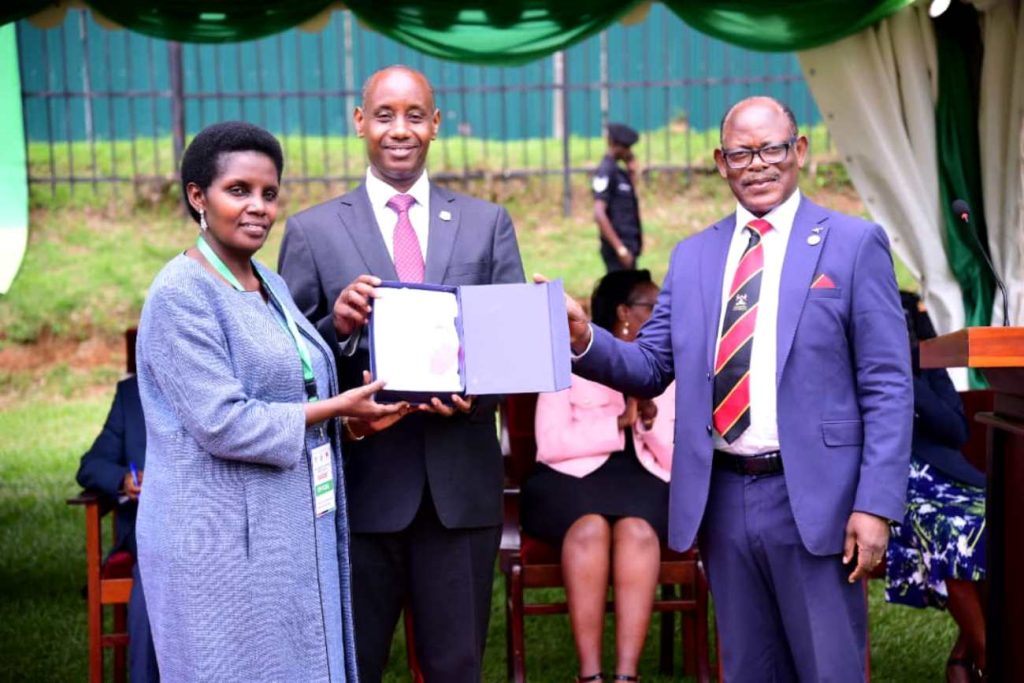
“I am proud to say that Mak-RIF has transformed Makerere’s academic and research landscape tremendously. Over the last five Financial Years, we have worked with other key stakeholders including Government ministries, institutions, agencies, organizations, and the private sector. Together, we have continued to increase the local generation of translatable research and scalable innovations that address key gaps required to drive Uganda’s development agenda, especially the un-funded priorities” stated Prof. Nawangwe.
In the same spirit, the Vice Chancellor applauded the Principal Investigator and Team Leader DARP, Mrs. Patience Rubabinda Mushengyezi and all the Team Members for the hard work that has improved the status of academic records and processes from manual processes to e-services. The DARP project is a collaboration between the Academic Registrar’s Department, College of Education and Externals Studies (CEES), College of Computing and Information Sciences (CoCIS) and the Directorate of Information and Communication Technology Support (DICTS). The DARP Project team includes: Prof. Betty Ezati, Dr. Peace Tumuheki, Dr. David Luyombya, Dr. Joyce Bukirwa, Ms. Ruth Iteu Eyoku, Mr. Juma Katongole, Mr. Joshua Muhumuza and Mr. Lubowa Gyaviira.
The Vice Chancellor also thanked the Makerere University Research and Innovations Fund (Mak-RIF) and the Mastercard Foundation for supporting different phases of the DARP Project.
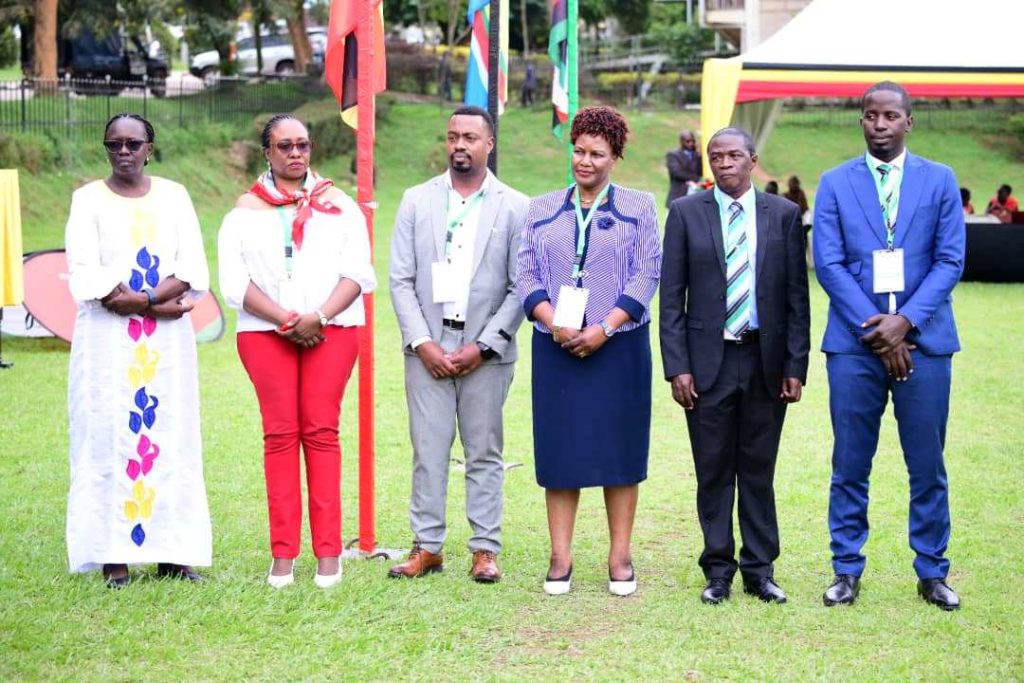
Mrs. Lorna Magara, the Chairperson of Makerere University Council acknowledged that launching the DARP project at Makerere University marked a significant step forward in digitalizing higher education services. She underscored that the transformational power of digitalization could not be overstated. She stated that by implementing an Academic Records Management System, the University would streamline the tracking and retrieval of academic files and establish a robust platform for digital certification and record verification.
“In an era where credential fraud poses a significant challenge, the DARP Project reinforces transparency, trust, and confidence in our academic processes. It is testament to our commitment to excellence. The DARP Project heralds a new era; one where our certificates and transcripts are shielded against increasingly sophisticated forgeries. By providing digitally verifiable academic documents, we empower employers worldwide to expedite verification procedures,” she articulated.
The Chairperson stated that Makerere University aims to create a dynamic and integrated learning environment with a goal to equip students with the skills and knowledge needed to thrive in an ever-evolving world. She emphasized the need to prioritize student-centeredness and adaptability which vision perfectly aligns with the DARP Project to ensure that the most deserving students can compete fairly in the job market alongside genuinely qualified candidates.
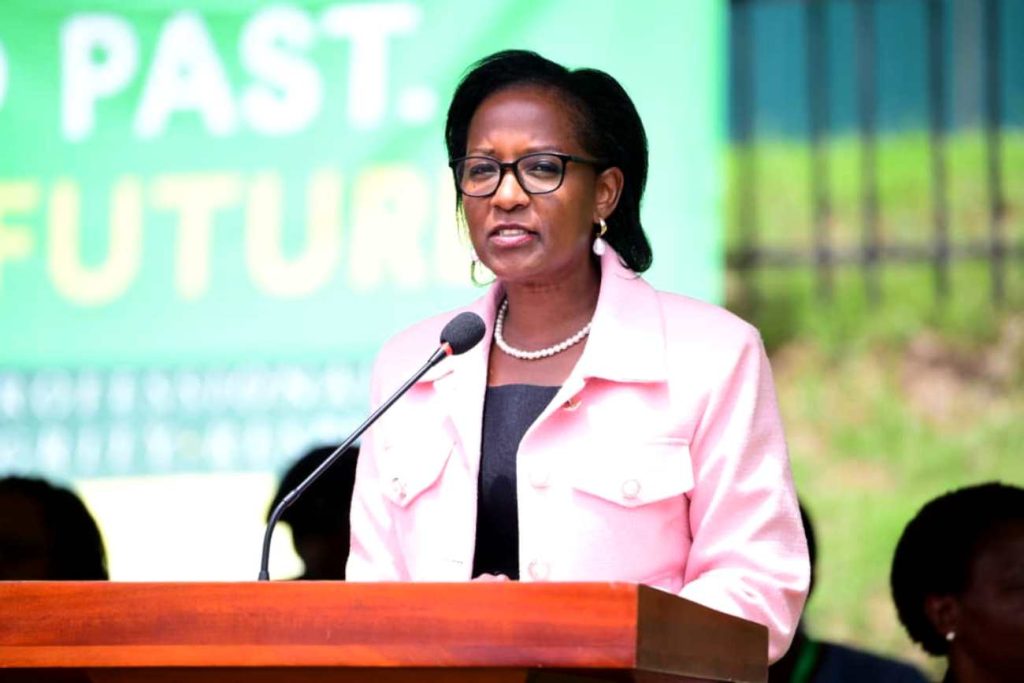
She advised that a system’s effectiveness hinges on the quality of input it receives, therefore, meticulous attention to detail is essential to ensure that the necessary information is accurately fed into the system to yield the expected outcomes. She recommended that vigilant effort has to be invested in ensuring quality processes in how the information is gathered and fed into the system, and the quality of persons tasked to do the work.
Mrs. Magara praised the DARP Principal Investigator for initiating the project in support of the University’s efforts to; address the critical element of maintaining integrity of academic records, significantly contributing to the University’s commitment to digitizing systems, and upgrading the process of archiving of records for ease in verification, certification, and retrieval.
She also extended appreciation to the Government of Uganda for the provision of funds through Mak-RIF, and to Mastercard Foundation for the provision of equipment and other support that will facilitate safe processing and storage of the academic documents.
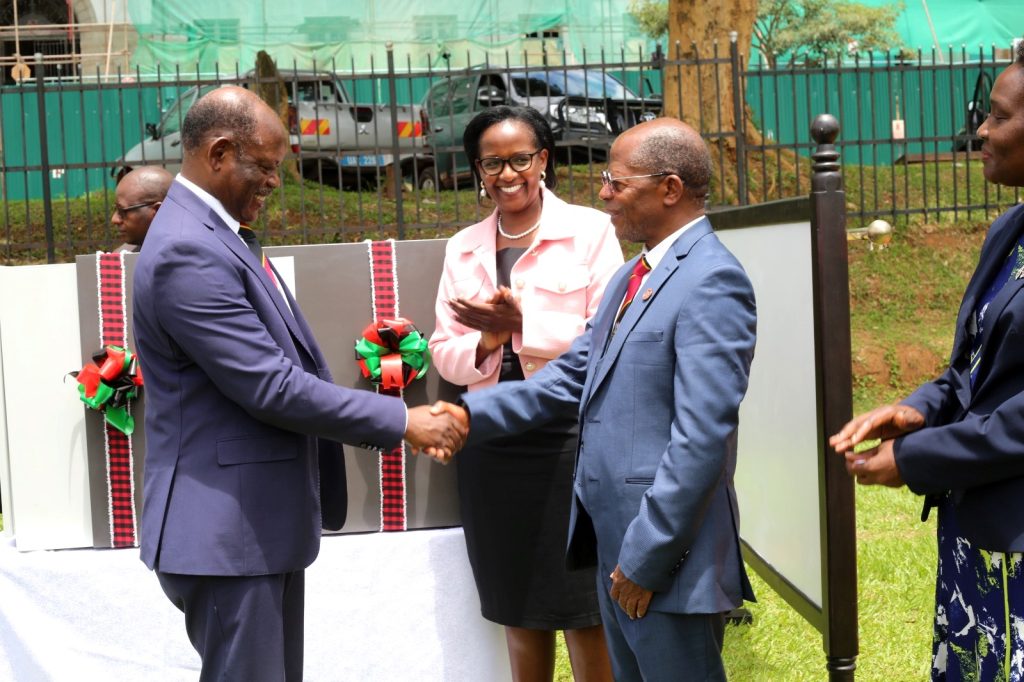
The Principal Investigator and Team Leader, DARP project, Mrs. Patience Rubabinda Mushengyezi proclaimed that the launch of the project was the birth of a new era in records management at Makerere University.
To enable the audience to understand and appreciate the situation before the DARP project, Mrs. Mushengyezi shared a documentary that highlighted the transformation from a purely manual process to a digital one. She added that the digitalization of student records from the 1980s changes the narrative of delays and long queues to fast, timely and friendly services to the students.
The Principal investigator disclosed that the DARP project team’s aspiration was to have the digitalization of students’ records rolled out in all the schools and colleges of the University. She observed that because of the hard work of the DARP team, they now have clear and well organized documents and the ‘ugly’ records shall never be seen again since they no longer exist. She expressed gladness that what started as a vision had become reality, culminating in the launch of the DARP project.
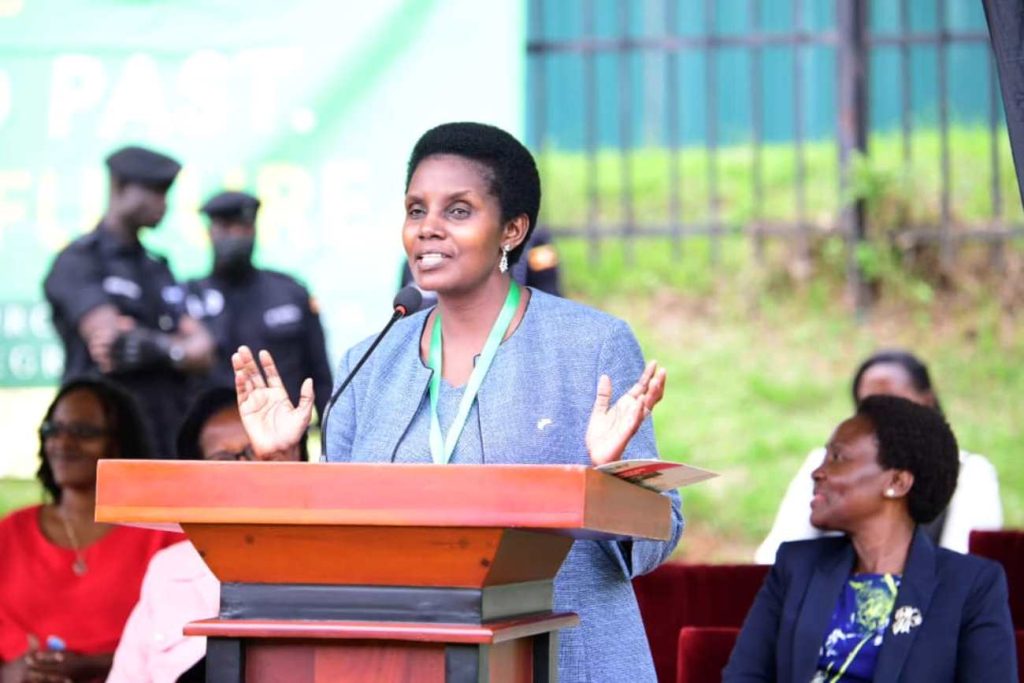
“Today, Makerere University is launching a new era of digital transformation in the management of students’ records and service delivery. We are changing the narrative of long queues, lengthy processes and we are now moving to efficient and digital services. We are here also to commission the registry of the students’ records and archive. The registry has been fitted with modern shelves with the capacity of storing over 30,000 students files but as we have seen, there is room for improvement and expansion. The archive has been fitted with modern shelves that have a capacity of storing over 100,000 students’ files and 21 wagons will store 170,000 students’ files,” Mrs. Mushengyezi declared.
Recalling the genesis of the DARP Project, Mrs. Mushengyezi shared that when the Government allocated support to the university’s research and innovations fund in 2019, she approached her colleagues and together, they submitted a project proposal. The project identified several challenges which were affecting records management at Makerere University namely; manual records handling, inadequate storage space, inadequate security for records, inexistent policy on records management, and lack of a system to streamline records management. The DARP project therefore set out to address these gaps with the ultimate goal of operating e-services.
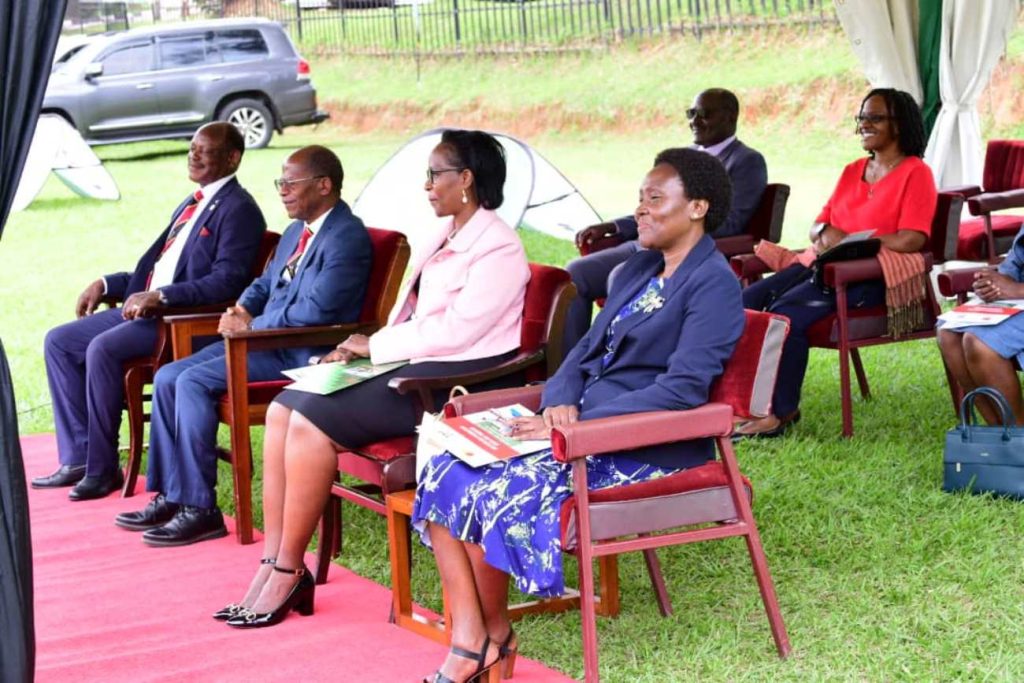
“The objectives of DARP Project were to digitalize academic processes including students’ files and examination results and other documents like senate minutes. We wished to establish a students’ records verification and certification Centre. We also wanted to use ICT to improve efficiency in conducting senate meetings and to archive existing manual documents into properly bound and referenced files. It has been a lot of hard work by the project team, but we have seen God’s hand in this transformational journey. I wish to say that we have achieved 95% of our objectives,” Mrs. Mushengyezi stated.
The Principal Investigator noted that the DARP project had created efficiency in the academic Registrar’s department with ability to generate reports on number of students by categories such as course, graduation cohort, academic disciplines i.e. Medicine, Law, Engineering etc., current enrolment and progression, as well as policies passed by the University Senate per year, and so on.
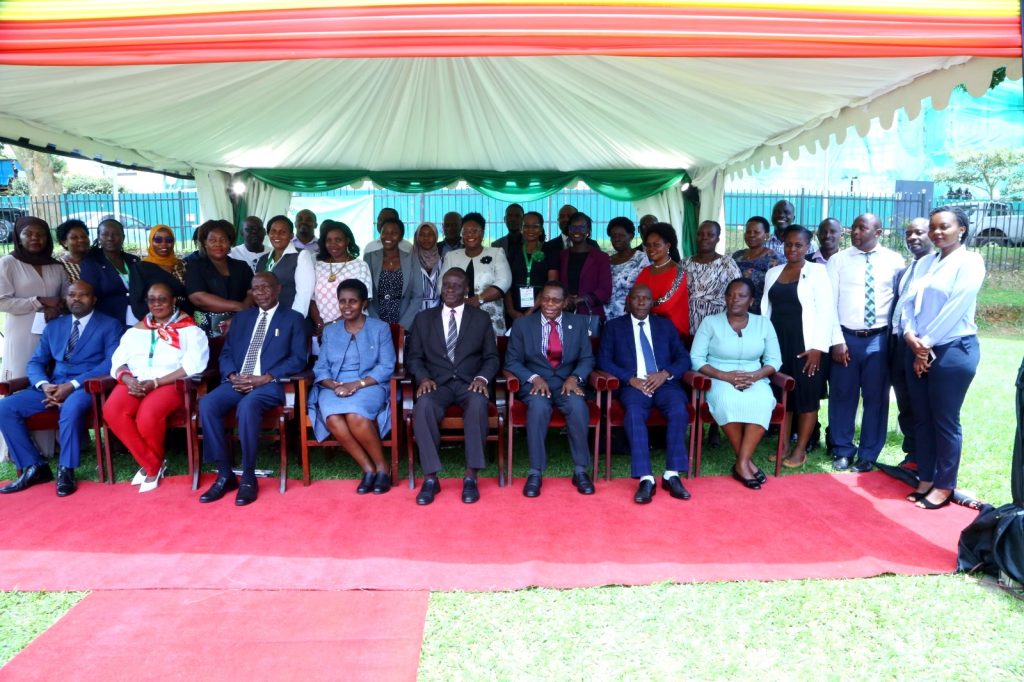
She thanked the Government of Uganda for funding the entire process by providing laptops, access control systems, CCTV cameras, printers, furniture, archival boxes, the 21 shelves, the wagons, stationery and facilitation of the entire team. She also thanked Mastercard Foundation for the support through the relief fund.
She appreciated the entire Makerere University Council and Management for the support rendered towards the establishment of the DARP project and for prioritizing the Project as a university programme. In a very special way, she acknowledged Prof. William Bazeyo, the former Deputy Vice Chancellor (Finance and Administration), Prof. Fred Masagazi Masaazi-Chairperson of Mak-RIF Grants Management Committee (GMC), Prof. Umar Kakumba, Deputy Vice Chancellor (Academic Affairs), Mr. Alfred Masikye Namoah, former Academic Registrar and the Academic Registrar, Prof. Buyinza Mukadasi, the University Secretary, Mr. Yusuf Kiranda, Deputy Registrars namely Mr. Charles Ssentongo and Mr. Tom Otim, for providing tireless support.
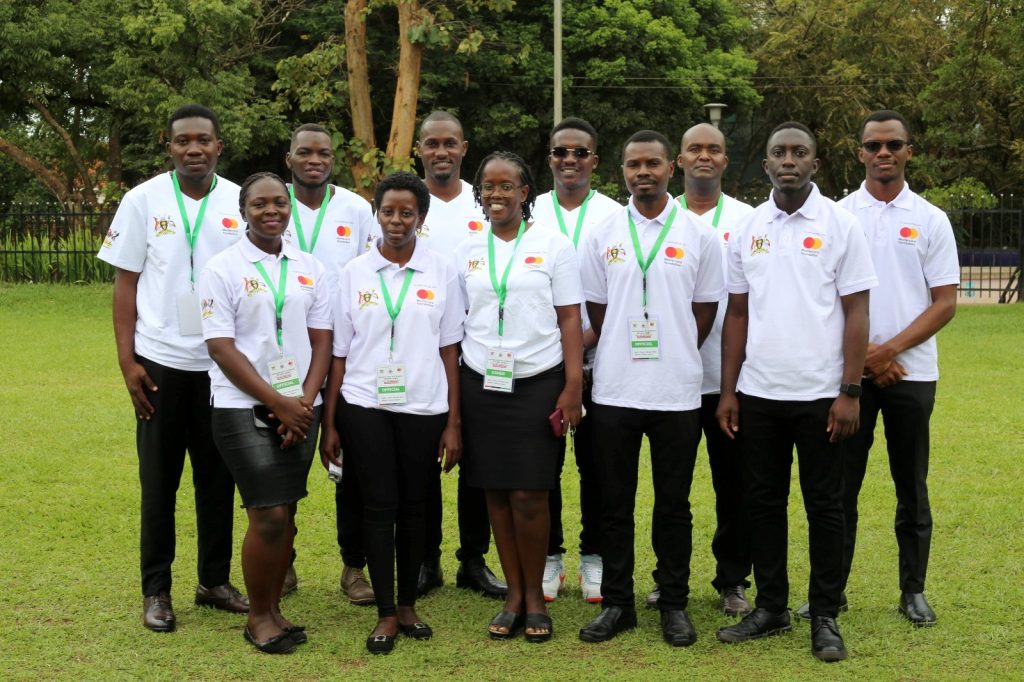
In addition, she recognized the supervisors in the Directorate of Research and Graduate namely Prof. Edward Bbaale and Ms. Prossie Nakayiki.
The Principal Investigator, Mrs. Mushengyezi also appreciated the members of staff whom she referred to as DARP Foot Soldiers for organizing, sorting and scanning the records.
In recognition of her selfless service and leadership, the DARP project team members through the Vice Chancellor, Prof. Barnabas Nawangwe presented Mrs. Patience Mushengyezi with a plaque and bouquet of flowers.
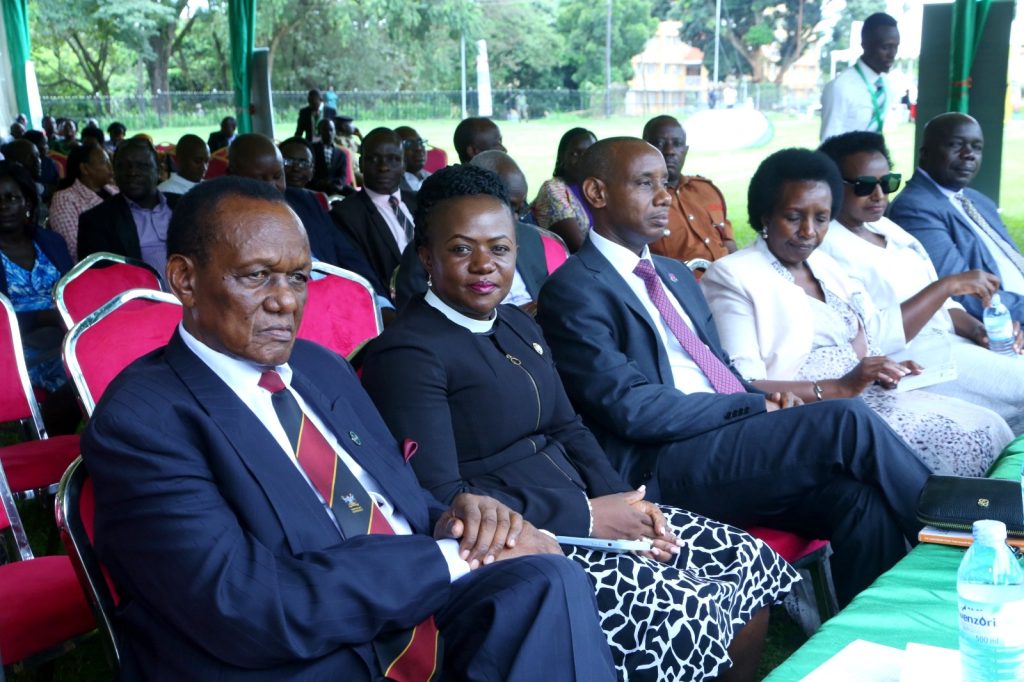
The DARP project launch was graced by the Chancellor Emeritus, Prof. Ezra Suruma, Members of Parliament, Vice Chancellors of other Universities, former Vice Chancellors, former Deputy Vice Chancellors in charge of Finance and Administration, the Makerere University Students’ Guild, and Mrs. Mushengyezi’s family. The Chaplain, St. Francis Chapel, Rev. Dr. Lydia Nsaale Kitayimbwa led the opening prayer while the event was moderated by Dr. Zahara Nampewo, the Deputy Principal of the School of Law and Ms. Ritah Namisango, Principal Public Relations Officer and Chairperson of the Protocol, Publicity and Media Sub-Committee for the launch. The Department of Performing Arts and Film was on hand to lead the anthems and keep the guests entertained.
General
Mak holds Mental Health Awareness Campaign for International Students
Published
24 hours agoon
April 22, 2024By
Mak Editor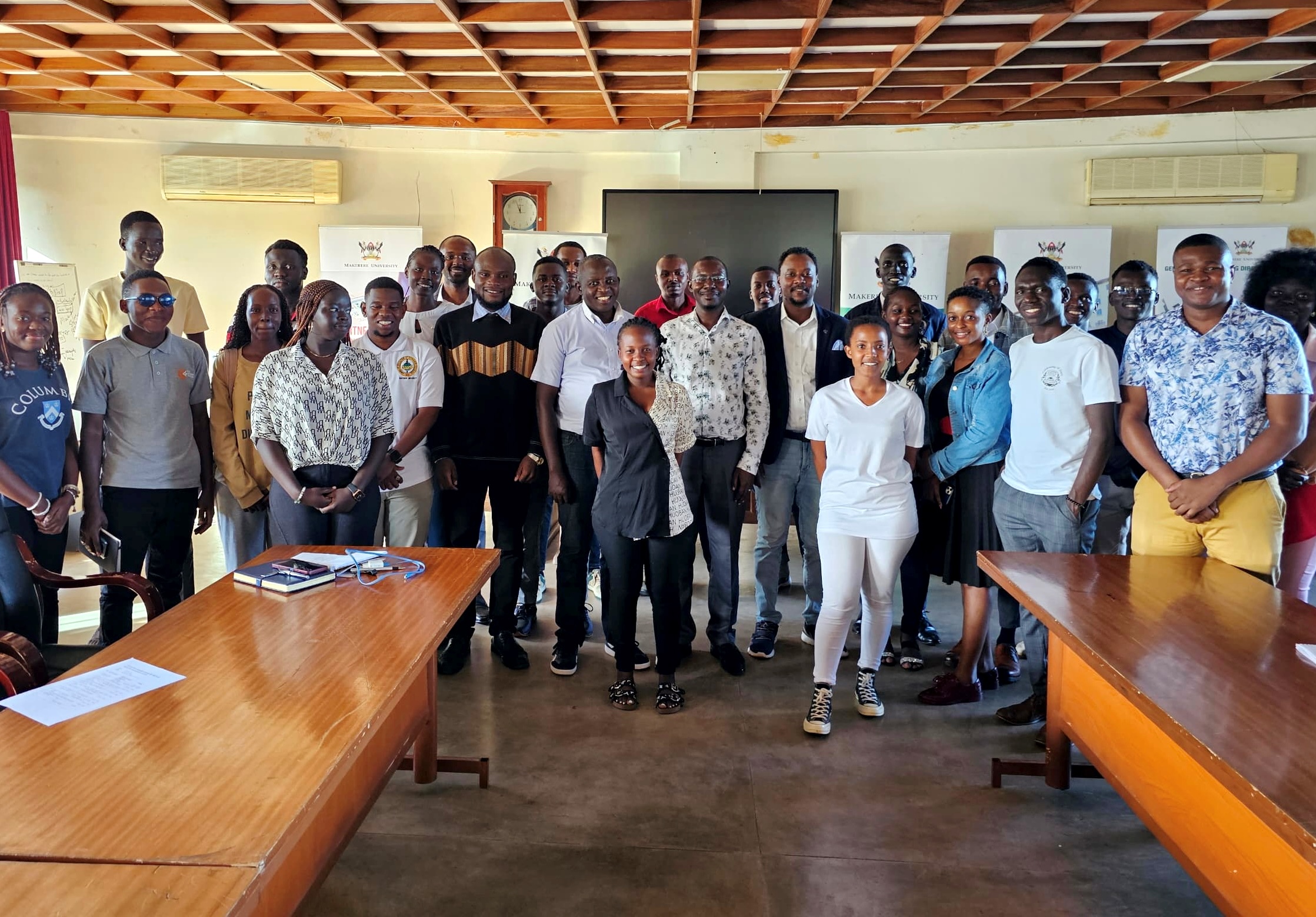
By Betty Nabisubi
On Friday 12th April 2024, over 100 international students convened at Makerere University to participate in the Mental Health Awareness Campaign organized by the International Students Union in partnership with the Counselling and Guidance Centre, International Office and Office of the Dean of Students.
The campaign, which included both physical and virtual participants, rallied international students to always ask for help. The annual event enables students to participate in engaging discussions, and provides a platform for them to openly share and address personal and academic challenges, both on and off campus.
The aim of holding a mental health awareness campaign for international students in the university is to promote mental well-being and provide support and resources for students facing mental health challenges. Furthermore, it seeks to raise awareness about common mental health issues, reduce stigma surrounding mental illness, and educate students on available mental health services and support networks. Additionally, it aims to empower students to recognize signs of distress, encourage help-seeking behavior, and foster a supportive and inclusive campus community where students feel comfortable discussing mental health concerns.
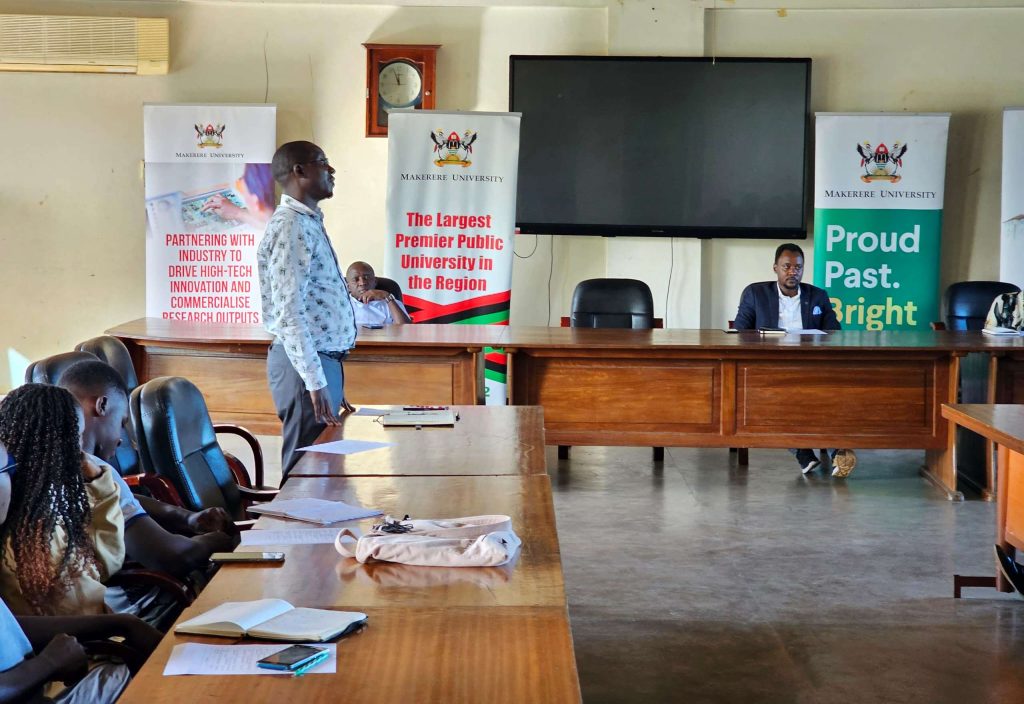
In line with the Mental Health Awareness Campaign theme; It is ok to ask for help, each Official urged the international students to seek guidance and support from the right offices and entities within the Makerere University system.
The Office of the Dean of Students represented by Mr. Peter Mwanja, Warden of University Hall emphasized the importance of students seeking help rather than isolating themselves in their hostels when faced with problems. He urged students to refrain from complaining about lack of assistance, but instead take action by speaking up when faced with challenges. Mr. Mwanja pledged to stand with the students throughout their academic journey so as to ensure that they have a fruitful stay at Makerere University.
In the same spirit, the Manager of the Makerere University Counselling and Guidance Centre, Mr. Henry Nsubuga called upon international students to utilize their services. He appealed to students to seek for help whenever they feel distressed.
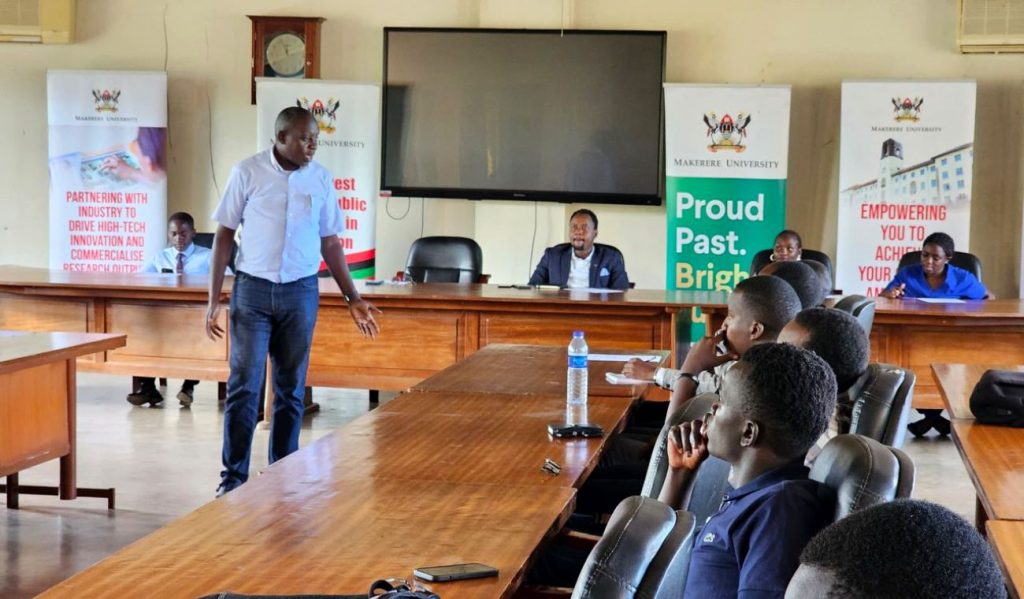
“Please come to the Centre when you need help. The Centre is ready to provide assistance upon any distress signal. I assure you that nobody will judge you for not being okay. We have professional counsellors who are willing to help,” remarked Mr. Nsubuga. The Makerere University Counselling and Guidance Centre is conveniently located at Plot 106, Mary Stuart Road, opposite Mary Stuart Hall.
Dr. Gardner Herbert from the Julius Nyerere Leadership Centre at Makerere University emphasized the importance of emotional intelligence, which encompasses the ability to understand, manage, and express one’s own emotions effectively, as well as to recognize and respond appropriately to the emotions of others. He highlighted the significance of students possessing skills such as self-awareness, self-regulation, social awareness, and relationship management.
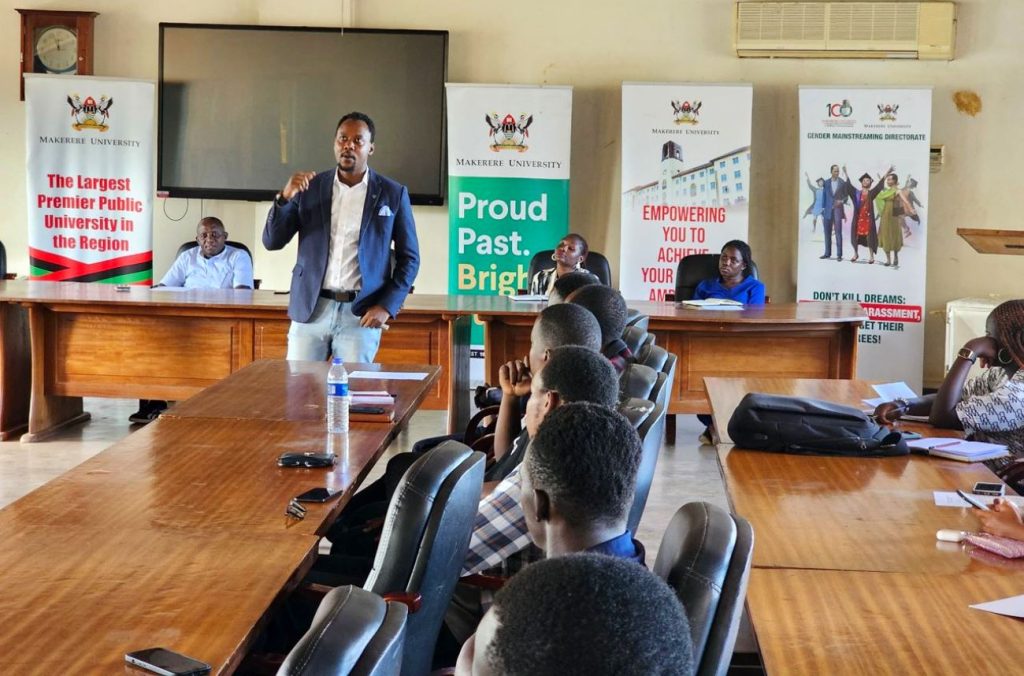
Self-awareness, he emphasized, serves as the foundation of emotional intelligence. This involves recognizing and understanding one’s own emotions, strengths, weaknesses, values, and motivations. Dr. Gardner explained that ndividuals with high self-awareness are better equipped to comprehend how their emotions influence their thoughts and behaviors, leading to more informed decision-making and greater self-control.
Mr. Gerald Ochwo on behalf of the Makerere University International Office encouraged the audience to visit the premises on Flat A5, Block A, Lincoln Flats for their mandate is anchored on ensuring that International students’ university experience is enriching. Furthermore, he emphasised the importance of students managing their visas proactively, instead of rushing to renew them either at the last minute or upon expiry. He pledged to organize more events to foster relationships among students.
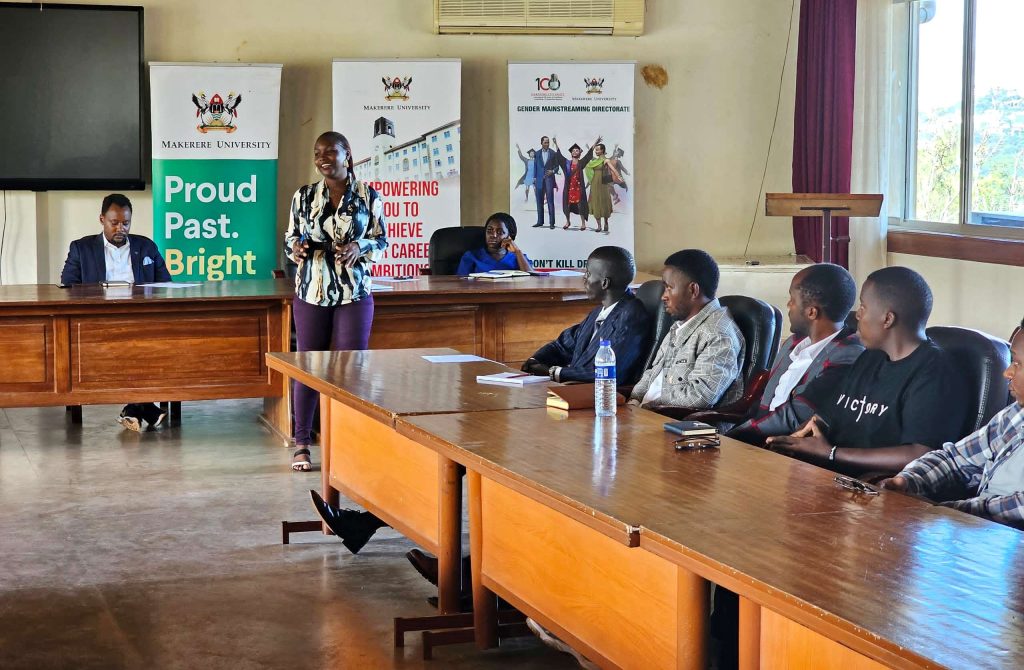
Focusing on nurturing a supportive environment for students away from home, the International Office invited Ms. Olivia Mwanje, a student of Makerere University pursuing a Master’s degree in Climate Change and Development at the College of Agricultural and Environmental Sciences to share a lived experience.
Ms. Mwanje was one of the beneficiaries of the exchange students’ programme to Utrecht University in the Netherlands. Her testimony served to demonstrate to international students that with dedication and sacrifice, it is possible to leave one’s home country, study abroad, and excel both academically and personally. She encouraged students to remain focused on their academic programmes despite the allure of other pursuits.
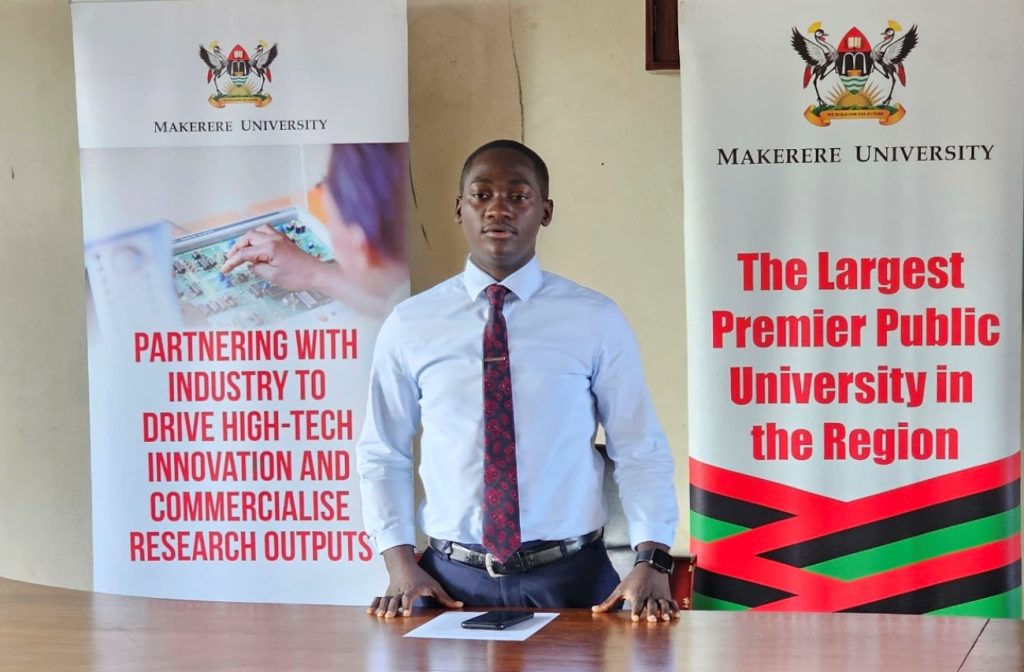
“I urge you, fellow students, to remain steadfast in your educational aspirations while exploring the opportunities available. Prioritize your academic goals over non-academic pursuits,” said Ms. Mwanje. She stressed that deviating from the primary objective leads to unintended consequences. For instance, she shared stories of students who abandoned their academic pursuits for menial jobs upon arrival abroad. Ms. Mwanje advised students to stay committed to their studies and, upon completion, pursue other non-academic endeavors if they so desire.
The Guild President, H.E. Vincent Lubega Nsamba expressed the Guild Leadership’s strong commitment to ensuring that international students have a comfortable stay at Makerere University. He encouraged international students to seek counselling whenever they feel distressed and emphasized the importance of talking to peers for support.
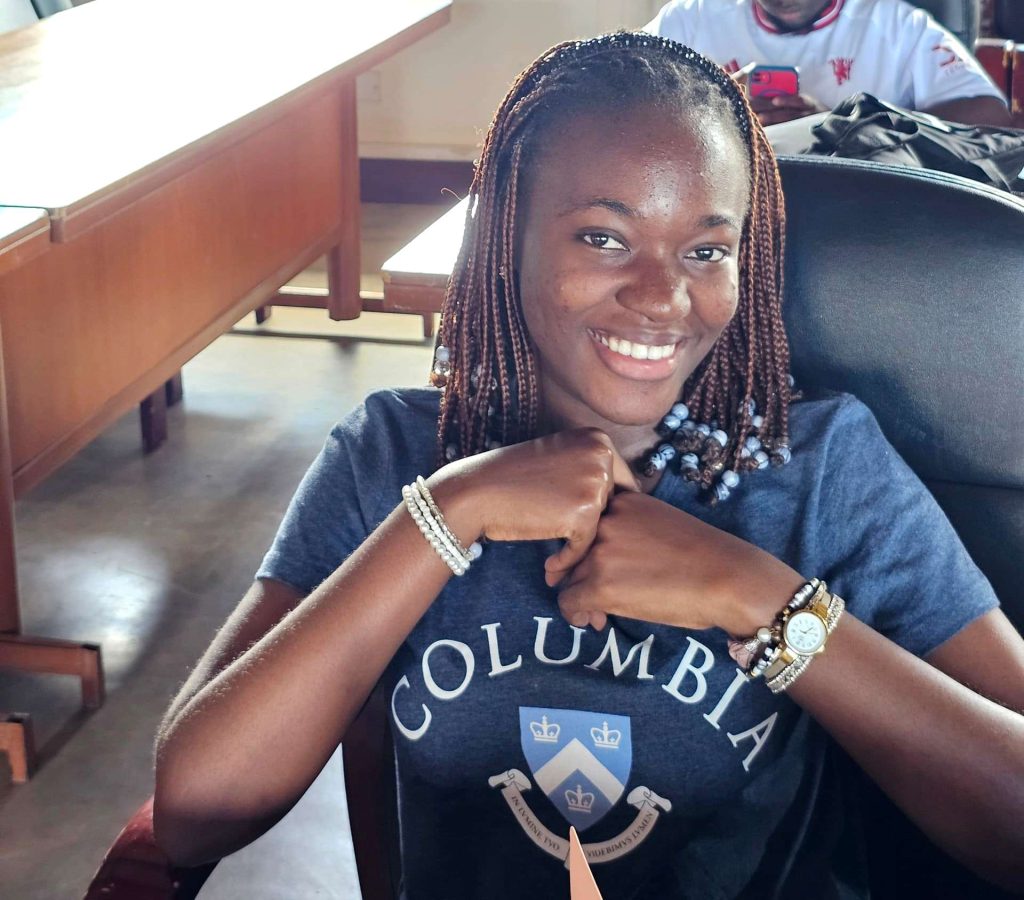
One of the international student leaders, Mr. Harrison Igwe expressed enthusiasm for organizing activities that promote unity within the international student community at Makerere University. The goal of the activities, he said, is to enhance camaraderie and strengthen support networks among international students.
General
Dr. Martin Aliker – Celebrating A Life Well Lived
Published
1 week agoon
April 16, 2024By
Mak Editor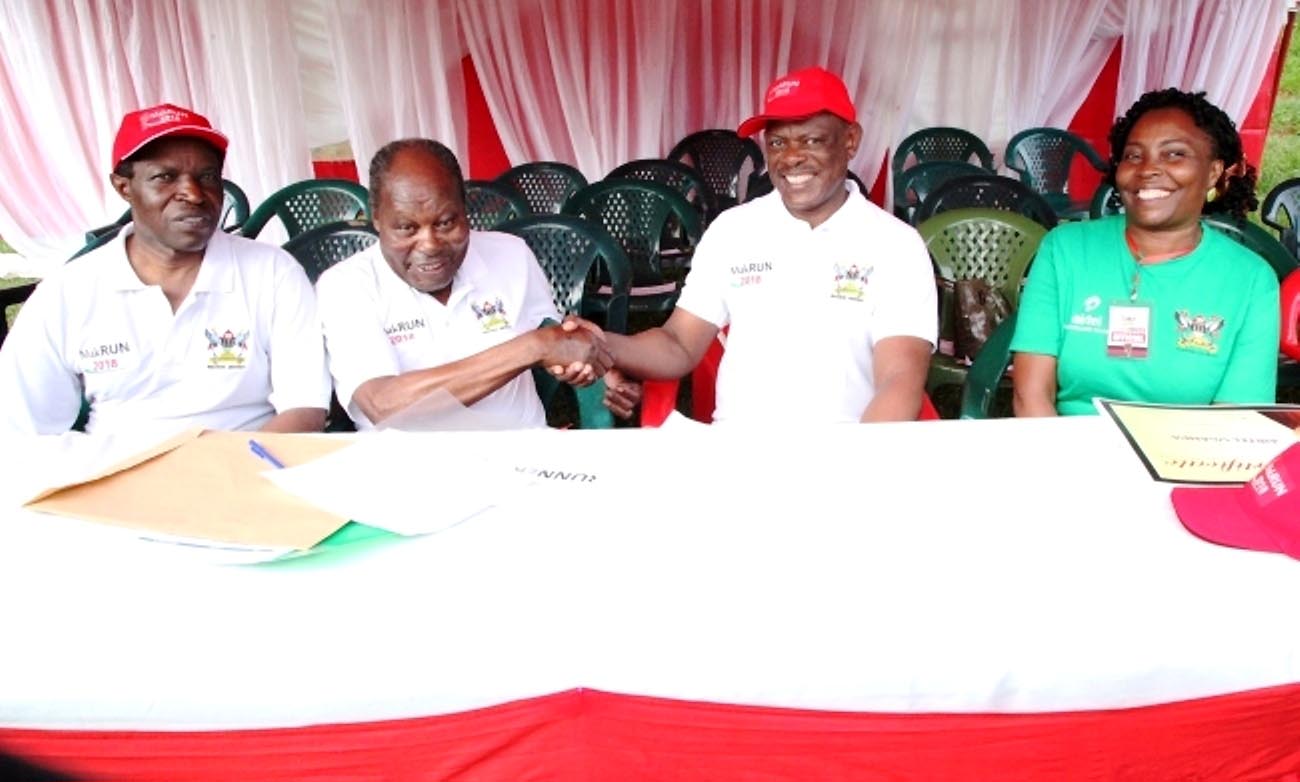
The Makerere University Council, Senate, Alumni and the entire students’ community has learnt with great sorrow of the death of your beloved head, Dr. Martin Aliker. Please accept our sincerest condolences during this trying time.
Dr. Aliker joined Makerere College then in 1948 and shortly thereafter received a scholarship to join Northwestern University, Illinois where he earned a Bachelor of Political Science. Being an ardent student, he also earned a Fulbright Fellowship at Northwestern University, and graduated with a Doctor of Dental Surgery, later becoming a Fellow of the Royal College of Dental Surgeons of the United Kingdom.
Dr. Aliker has throughout his long and well-lived life projected an enviable brand, reflective of a professional and hardworking gentleman who has excelled in all walks of life as a distinguished alumnus, scholar, influential business leader, entrepreneurial mentor, and one of Uganda’s and indeed Africa’s and the Commonwealth’s leading senior citizens.
The name Dr. Martin Aliker has stood the test of time as one attributable to dedicated service with impeccable integrity, tested and proven business acumen, making him a distinguished source of inspiration to both the young and old. It was therefore with great pride that Makerere University on 17th July 2014 appointed him as the Chairperson of the pioneer Board of Trustees in charge of the Makerere University Endowment Fund (MakEF).
Under his stewardship, the Inaugural Board had at the end of their term in 2019 grown MakEF’s onshore fund from nothing in 2014 to UGX 1.5 Billion, while the offshore fund was valued at 1.5 Million GBP.
We remain forever thankful to God for the gift of Dr. Martin Aliker’s inspirational life and pray that the good Lord will comfort you his beloved and rest his soul in eternal peace.
Umar Kakumba (PhD)
AG. VICE CHANCELLOR
Related articles
Dr. Martin Aliker to Prof. Maggie Kigozi: The Legacy of MakEF
Bidding Farewell to Pioneer MakEF Board of Trustees
MakRun 2019 Raises Over UGX100Million
Mak receives property: NIC hands over Plot 2A Kampala Road
MakRun2018: The Push Towards a Centre that Reflects Dynamism of the 21st Century Student
MakRun2017 Gives Over 190m Roaring Start to Students Centre Project
Thousands Run for Mak Students’ Centre
Fulbright celebrates 70years of partnership and achievements
Makerere Inaugurates Endowment Fund Board of Trustees
Ngugi revitalizes Pan-Africanism as Mak honours Nyerere
Trending
-
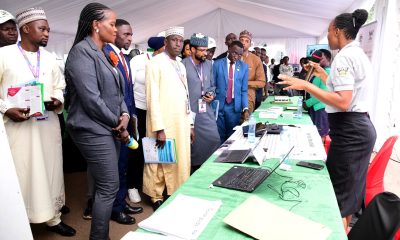
 Computing & IS6 days ago
Computing & IS6 days agoFree Course: Introduction to Data Science
-
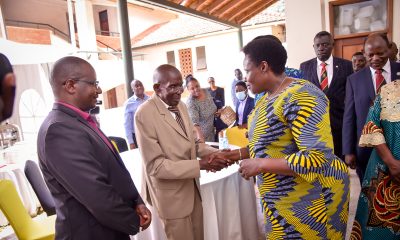
 General1 week ago
General1 week agoProf. Justin Epelu-Opio, Our Longest Serving DVC Rests
-
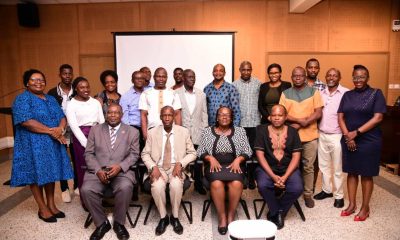
 Education4 days ago
Education4 days agoGovernment Asked to Make Fine Art Compulsory in Secondary Schools
-
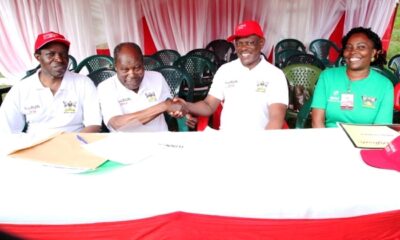
 General1 week ago
General1 week agoDr. Martin Aliker – Celebrating A Life Well Lived
-
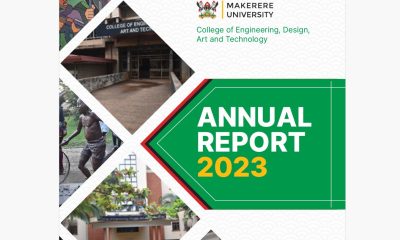
 Engineering, Art & Tech2 weeks ago
Engineering, Art & Tech2 weeks agoCEDAT Annual Report 2023
